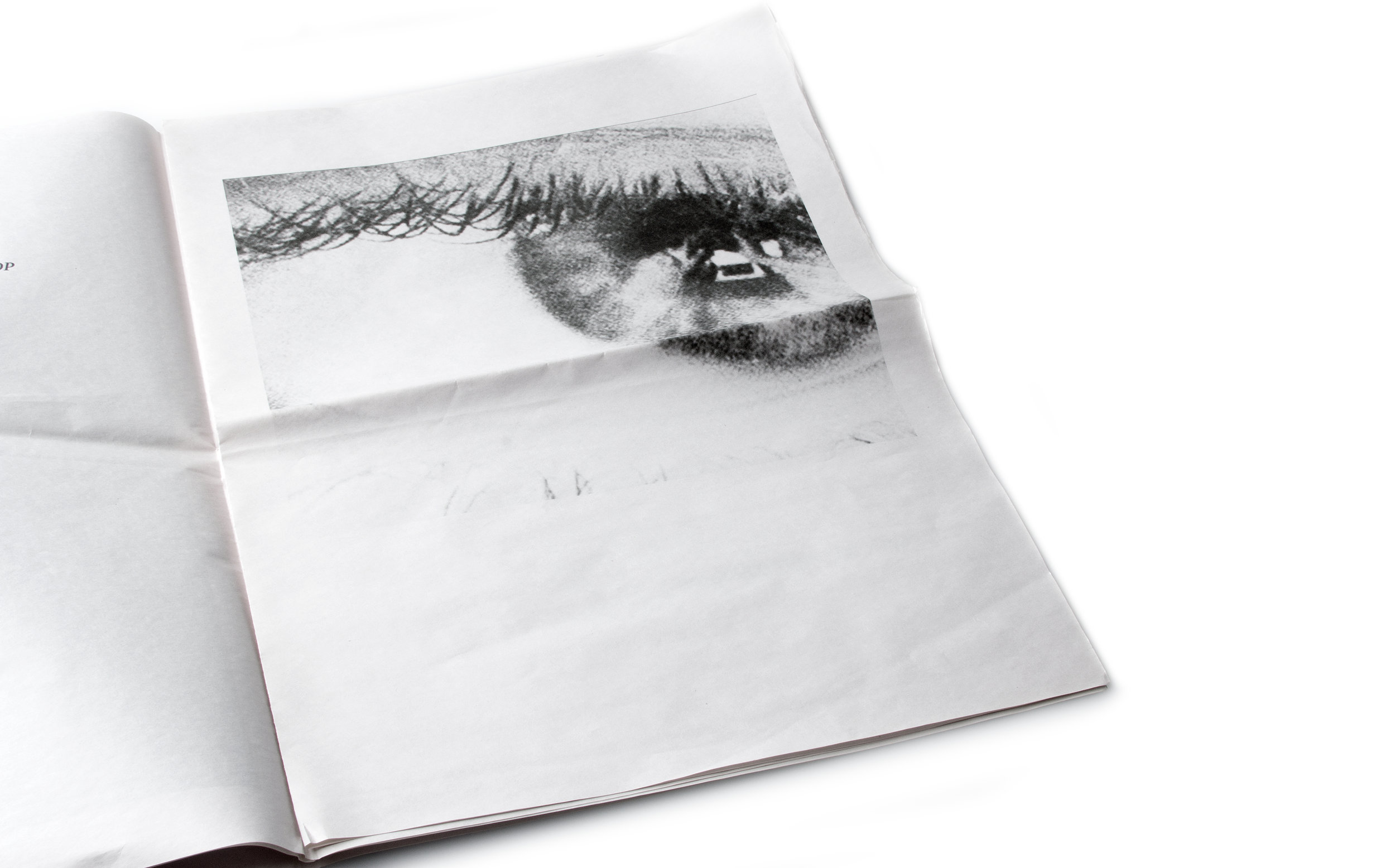Dominic Till
Dominic Till
Even Looking At This Will Make A Difference
Newspaper Zine
Edition of 10
2017
From the artist:
Even Looking At This Will Make A Difference is a text and image newsprint ‘zine’ that uses a repetitive structure with phrases that start We Could (mere suggestion) and puts them alongside idioms and phrases in conjunction with imagery. The text aims to highlight the limits of language, self-expression and human behaviour on a socio-political level. This takes place whilst being underpinned by what could be described as flippancy of language.
Book review by Kelsey Sucena |
I have taken on the impossible task of describing a zine about the limits of language, self-expression and human behavior. In only sixteen pages of newsprint Dominic Till is able to skillfully engage with and critique the concepts of language, art, and meaning. Six lines of text, five black and white photographs and one illustrated cover construct a space as enigmatic as the world around us. From them we are reminded that language, and art by extension, are limited vehicles for the transmission and alteration of reality.
It’s not a secret that language is often absurd. Take for example Till’s nonsensical statement “we could play with pennies and make them drop”. Sit with it on your tongue and it starts to taste funny. Decontextualized, sterilized, and atomized, it doesn’t hold much weight. We can analyze it, try to pick it apart, dissect it for meaning, but the dadaic world that these words create actively resists our probing. Pay no attention to the man behind the curtain and we start to wonder if anybody is even there.
Set this line against a close up photograph of an eye, the photographers hands glistening within its pupil, and the spread becomes even more enigmatic. We are reminded of the body, of the eye and of vision, but this is only a hint. We may begin to fall back on the idea that this work is completely esoteric; tell ourselves that the words are meant for somebody else, but at the moment of dismissal the title echoes back, a haunting promise:
Even Looking At This Will Make A Difference.
We look at art because we want it to make a difference. There is, of course, the prospect that art can change the world, but there is also the more subtle, selfish and personal hope that art can change us. Till reminds us that words and photographs are merely imitations, self-expression can be fraught with miscommunication, and that humans often behave irrationally. Art, in this realm, sheds itself of our projected desire to make a difference. We finish flipping through the zine only to look up and find that we are the same. We look around to see that the world is too.
I finish flipping through the zine when I look up to see the popular comedy It’s Always Sunny in Philadelphia on television. In this episode Frank Reynolds, played by Danny Devito, is intent on infiltrating and eviscerating the art world. Disguised as eccentric art collector Ongo Gablogian, he proceeds to critique the work at a gallery opening. He points to one piece “Bullshit!”, to another “Bullshit!”, and to another “Derivative”, before settling his gaze upon an air conditioner. “I love. I absolutely love.” The timid gallerist reminds him that it is just an air conditioner.
“I mean, look at us. We’re just air conditioners”, he responds frivolously.
I find Gablogians explanation to be oddly satisfying. I even catch myself falling for it a bit. Though he parodies the art world he does succeed in making an important conceptual point. That a perceived authority can claim meaning from the meaningless, and that others will yield to that authority, suggests that maybe sometimes we take art too seriously. In Gablogian the Dadaists are alive and well.
Art has its limitations, and when we take it too seriously by subscribing to the idea that art must necessarily make a difference, that it is always sacred and meaningful, then we are only limiting it further. Through a playful use of familiar phrases, algorithmically warped via the addition of ‘we could’ at the start of each line, Till suggests the same sentiment. “We could play with pennies and let them drop", "we could turn the tides”, “we could die on our feet, yet we choose our knees.” Words suggest action, but they are no substitute for praxis. Sometimes art is bullshit, and that’s ok.
I wonder to myself if Till's zine keeps its titles promise. Am I changed for having read it? Is the world the same today? I’ve been trying to figure it out, recognizing this opaqueness as a real strength. We can put words to these ideas, describe the photographs and the material, and really get at what we mean when we say that language is limited, but, of course, what difference would any of that make?








